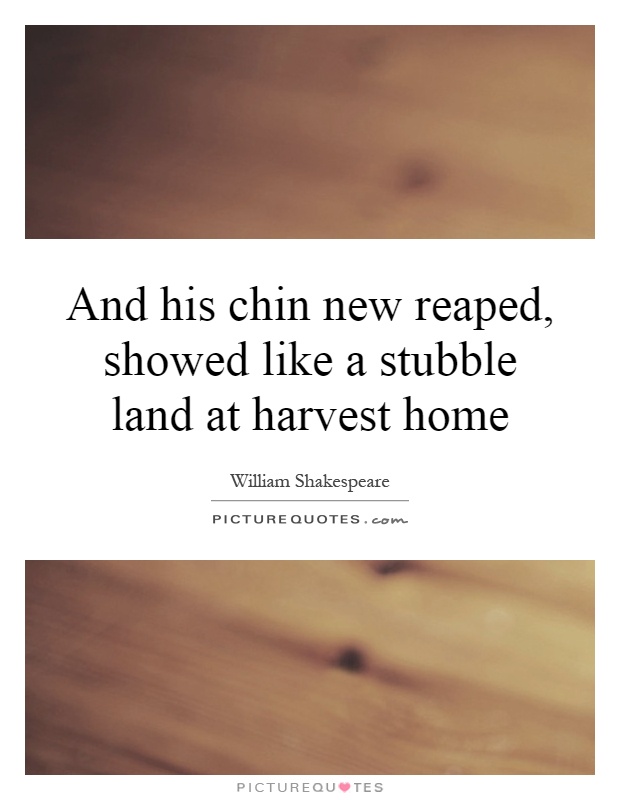And his chin new reaped, showed like a stubble land at harvest home

And his chin new reaped, showed like a stubble land at harvest home
In William Shakespeare's play Macbeth, the line "And his chin new reaped, showed like a stubble land at harvest home" is a vivid description of the character Macbeth's appearance. This line is spoken by the character Ross in Act 5, Scene 3, as he describes Macbeth's disheveled and unkempt appearance.The imagery of a "chin new reaped" evokes the image of a freshly harvested field, where the crops have been cut down and the land is left bare. This description suggests that Macbeth's chin is now exposed and vulnerable, much like a field that has been cleared of its crops. The comparison to a "stubble land at harvest home" further emphasizes Macbeth's rough and unkempt appearance, as stubble is the leftover stalks of grain that remain in the field after the harvest is complete.
This imagery serves to highlight the physical toll that Macbeth's actions have taken on him. Throughout the play, Macbeth commits a series of heinous crimes in his quest for power, including the murder of King Duncan and the slaughter of Macduff's family. As a result, Macbeth becomes increasingly isolated and paranoid, leading to his descent into madness.
The description of Macbeth's chin as a "stubble land at harvest home" also reflects the theme of nature and the natural order being disrupted in the play. Macbeth's actions go against the natural order of things, leading to chaos and destruction. The imagery of a harvested field further emphasizes the idea of death and decay that pervades the play, as Macbeth's reign of terror ultimately leads to his own downfall.
Overall, the line "And his chin new reaped, showed like a stubble land at harvest home" is a powerful and evocative description of Macbeth's appearance in Shakespeare's play. It serves to highlight the physical and emotional toll of his actions, as well as the theme of nature being disrupted by his ruthless ambition.












 Friendship Quotes
Friendship Quotes Love Quotes
Love Quotes Life Quotes
Life Quotes Funny Quotes
Funny Quotes Motivational Quotes
Motivational Quotes Inspirational Quotes
Inspirational Quotes